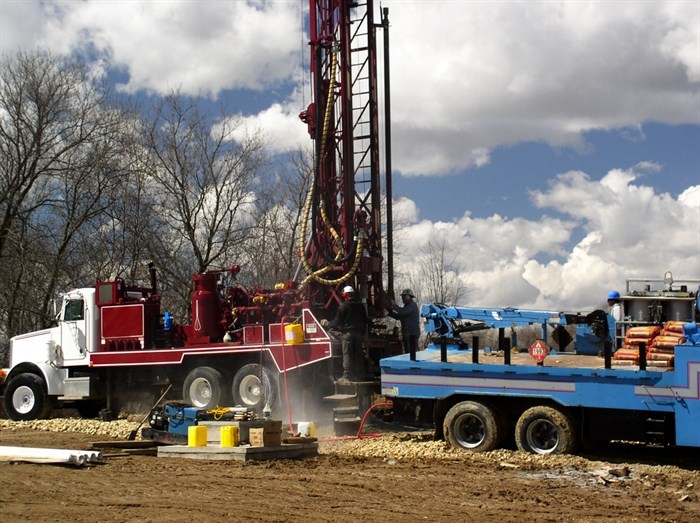
The companies which drill wells in southern B.C. are reportedly busy and the reason may be the introduction next spring of the provincial Water Sustainability Act and its new well licensing requirements.
Image Credit: Shutterstock
September 14, 2015 - 8:00 PM
IMPACT UNKNOWN
THOMPSON-OKANAGAN - Companies drilling water wells in the B.C. Southern Interior appear to be busier than usual and the reason may be the introduction next spring of the provincial Water Sustainability Act and its new well licensing requirements.
While hard numbers of how many wells are being drilled are hard to come by — that's one of the failings the new act aims to correct — anecdotal information from a range of interested observers suggests water users are trying to get the jump on the new act. They are drilling now, not knowing how much commercial well users will have for use — or the greater impact on the region's aquifers.
Doug Geller, president of water and hydrogeological firm Western Water Associates in Vernon, says there's so much uncertainty about what's coming, he's not surprised. He's seen it before.
“There’s uncertainty about what might be required. There’s uncertainty about how much permitting will be involved in getting a well into the ground in the first place. Some think it will cost a lot more," he says. “I know that our neighbours to the south in Washington went through a similar thing when they started regulating ground water. A bunch of wells got drilled in advance of the pending regulations. There was a drilling rush."
If increased costs are a concern for commercial users, they should be. The government is already facing pressure to increase the fee it plans to charge commercial users — $2.25 for a million litres.
The provincial government estimates at least 20,000 existing wells are used for commercial purposes with more coming on line every day which will be affected by the introduction of both licensing requirements and fees for water use. However, no firm numbers exist, says Ministry of Environment spokesman David Karn.
"Currently no well owners have applied or been issued groundwater licences as there is currently no legal requirement to do so, nor have the specific application requirements been finalized," Karn says. "The updated regulations will come into force in 2016 along with the Water Sustainability Act. At that time, all non-domestic well owners will be required to apply for a license."
"The province acknowledges the public concerns and will be further reviewing the rates and fees charged for water as we continue implementation of the new Water Sustainability Act,” Karn says.
Geller says he doubts anyone drilling a well now or who already has a well intends to keep it as an unregistered back-up source of water.
“That wouldn’t be an advantage, you are creating a liability for yourself if it’s discovered. It’s my understanding the larger capacity wells will be required under law to report their existence and eventually report how much they are drawing.”
Still, current regulations do not require a registered driller or owner of a well to report it, he adds.
“It’s strongly encouraged, but it’s not a mandatory reporting requirement.”
Geller also thinks the current level four drought advisory in place over much of southern B.C. is driving some people to drill for water.
“Some farmers and others could be digging wells as an insurance policy," he says.
Anna Warwick Sears, executive director of the Okanagan Basin Water Board, says the new legislation will encourage well registration and licensing by giving priority to older wells and grandfathering them into the system.
There is also some distinct advantages to having a permit for a residential well or a license for a larger commercial well, Sears says.
“They are supposed to look at the sustainability of the aquifer when issuing licenses. You have to register your well in order to get protection from people with commercial wells near you. If your well is not registered, they don’t have to consider your requirements.”
The Water Sustainability Act was introduced in 2014 and becomes law early in March 2016. It replaces the broadly-named Water Act which was made law in 1909.
To contact the reporter for this story, email John McDonald at jmcdonald@infonews.ca or call 250-808-0143. To contact the editor, email mjones@infonews.ca or call 250-718-2724.
— This story was updated at 4:21 p.m., Friday, Sept. 18, 2015, to correct a factual error.
News from © iNFOnews, 2015